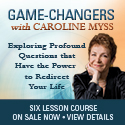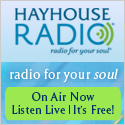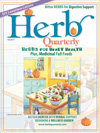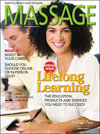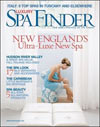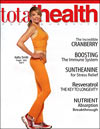Here's the transcript:
RD: Hi, this is Janet Dagley Dagley, editor of The Reiki Digest. And I have on the line Debbie Griseuk of the New England Reiki Center. Hi Debbie!
DG: Hello!
RD: How are you?
DG: I’m very good, thank you.
RD: And the reason we’re talking to you today is you have been personally affected by the guidelines that were issued by the US Conference of Catholic Bishops on March 25 concerning Reiki. Could you tell us a little bit about your situation and about what happened?
DG: Sure. For the last, I don’t know, maybe, 7 or so years, I have been running a clinic over at Millett Manor, which is St. Joe’s Hospital Wellness Center, and it’s in Nashua, New Hampshire, and I also recently, within the last two years, was asked to take on yet another clinic on behalf of St. Joe’s, and it was an affiliated agency situation where the Greater Agency of Nashua, Home Health & Hospice….and Southern New Hampshire Hospital and St. Joe’s did a collaborative. So on their behalf they asked me to run the Reiki clinic over there at so-called Mission Point in Hudson, NH. So when the bishops’ statement came out, I was asked to leave both clinics. Actually, they did not say it was because of the bishops’ statement. They said it was because of a change in programming. And they have every right to do a change in programming. And I also want to state, too, for the record that St. Joe’s Hospital really has been very good to me for many years, and I have a lot of friends over there, you know, people that I really care about, and I think they felt actually worse than I did for this thing coming up, this situation. So that’s kind of what happened. So I was asked to leave both clinics.
RD: And you had your office in one of these places and you’ve now had to find a new home for your office, is that right?
DG: Not really. That was a little bit misquoted from the paper. I was not really operating a private business on their facility. I honestly was doing the clinic and doing keep-in-touch classes and those kinds of things. So I’ve always had a private office.
RD: I see. OK. Thanks for clearing that up.
DG: Sure. They also didn’t charge me for the space – it was community service. In an exchange, we have a small fee for the clinic, $20 for a half hour, and if somebody just couldn’t afford to pay, or if it was kind of a medical, or a favor or a friend of a friend or whatever, there was no question. It was just, OK, come on in.
RD: So do you still have the clinic, but have it elsewhere?
DG: I do. I just recently had my first clinic, another clinic that we started, in Nashua again, at a friend’s office, so I did that the first of June, and the next, this Friday, the senior center, the Nashua Senior Center, the executive director called me and asked me to come in and talk to her because they would love to host us, they felt that it’s a really good activity for baby boomers and, to start incorporating more mind, body, and spirit techniques and programs into what they call the senior center but it’s for people over 50. So, unfortunately I do qualify.
RD: And so do I.
DG: So they’ve been fabulous. Not only did they invite me over, but they have a newsletter that they print out and they have something like 2,000 members or something, they put a full-page flyer in there announcing the Reiki clinic would be there, at no cost to me, just to be supportive of the program. And that’s how much the executive director believes in it.
RD: Was the executive director familiar with the work that you were doing at the Catholic facilities? Or how did they find out about you?
DG: Well, actually, yes. One of her staff members is a friend of a friend, one of the clients that come constantly, and I guess she’s been hearing about it for years, and when they saw the situation in the paper, which was a giant photograph on the front page of the paper, it was almost embarrassing. It was great, it was so big! I guess it was a slow news day or something in New Hampshire. So when they did see the article on the front, they recognized my name as a friend of a friend and she went to the executive director and said, you want to talk to her and give her a call. So she did, and she was wonderful, and I think she’s going to be a long-term friend.
RD: Wow, that’s great! So you’ve gone through shifts, but the community has recognized that there is a need for what you do and they’ve come up with a way to let you keep doing it?
DG: Right. Not only that, Janet, but I literally have so many other opportunities that have come across from that situation, that people wanted to help me find a space, they’ve invited me to come over and submit a proposal, and it got to the point where, I mean, two clinics is all I can possibly handle. Cause I still have to staff them with practitioners and so on.
RD: You’re a full-time Reiki practitioner, right?
DG: Right.
RD: And this is, you don’t have a day job, this is your day job.
DG: This is my day job.
RD: And you practice Reiki and you teach. Is that right?
DG: Correct.
RD: So, overall, has your practice been helped or harmed by the bishops’ decision?
DG: Well, I’m sorry to say this, but some of my friends are telling me I should write them a thank-you letter. My practice has increased tremendously from their decision to get everybody talking about Reiki. And making it so well-known. Just as a small example, I was moving the tables, the massage tables, into the senior center and a lady came over and started talking to us as we were kind of moving them in, and she said, “You’re the one in the paper. I sent a copy of that to my friend in Canada and we’re never going to church again. That was the last straw – we’ve had it with that. So I tried to tell her that, you know, don’t let it take away from what you feel or believe in. It was only a small group of eight bishops and I don’t think they really understood Reiki, and, quite honestly I mean, they have nothing to fear from us. I kind of tried to defuse the situation, but she was so angry at the Catholic church, it was like her last straw.
RD: There are a lot of really, really strong emotions involved with this.
DG: Right. I have, honestly, believe it or not, it has been very beneficial to me. And the fact that so many people have been talking about it and offering different things that will be helpful to the community to continue Reiki.
RD: So has anyone suffered because of it? Are there people who used to have Reiki available to them that don’t now?
DG: I’m sure there are some, Janet. I’m definitely sure there are some. In the building that’s called Millett Manor, or the parish nursing center, that’s where the clinic was, there were people that came in often, actually, just about every clinic, that, they live upstairs in the building and they probably couldn’t get out very much. So they would come and receive Reiki. So I’m sure those kinds of people are not able to travel, so they don’t have the Reiki available to them directly. It is still, I still offer it to them, as with my original deal, that anybody with St. Joe’s, if they need Reiki, regardless of their situation they’re welcome to come to my clinic at any time. But I can’t provide transportation. And the people over at Mission Point, some of those people could just walk over and get their Reiki, and now it’s a whole different thing, they have to get in the car, and go 5 or 6 miles.
RD: So it’s not nearly as convenient as it was before.
DG: Correct.
RD: So this has actually brought more attention to Reiki in general, and to your practice – it’s been good for business.
DG: Honestly, it has. I’ve heard from clients that I saw years ago who sent letters to the bishops and called me and said, you know what, this is the one thing that helped me when I was going through my surgery or whatever, and this is crazy that they’re doing that. So how about if I make an appointment at the new clinic. So people that I haven’t heard from in years have kind of called in. So I do have to say that it really has been honestly very helpful that so many people are now talking about Reiki.
RD: Yeah, a lot of people say that. And there’s the old line of, you know, it doesn’t matter what you say about me as long as you spell my name right, any publicity is good publicity….
DG: I think they’re right. My 15 minutes of fame. This has been a good situation.
RD: And now you have 15 minutes more, maybe more than that, to share your story with other Reiki practitioners. Because most of the people who read The Reiki Digest or will be listening to this are also Reiki practitioners. Was it a shock to you when you were told you program was being discontinued?
DG: Totally. I was so caught off guard. I remember, actually, reading it in The Reiki Digest, if I’m not mistaken, at the end of March, and I just thought to myself, wow, I’m a recovering Catholic, and these people are off the wall. I don’t know where they’re coming from. But I just didn’t kind of pay it any mind, Janet. I just thought, whatever. And it wasn’t until it directly affected me – I was like, aah! Oh, I see now. So I really was quite surprised. I really didn’t know it was coming. I didn’t think the hospital – I don’t know, the hospital’s supposed to be a little bit of every flavor, not just Catholic.
RD: So how long had you been working with these Catholic facilities? It had been some years, right?
DG: Sure. About 7 or 8 years. I actually started the St. Joe’s Hospital in-room service program, where they could receive Reiki in their room or pre-op or post-op surgery. So I started that as a way to get more practice.
RD: And have you been back to these facilities since that happened?
DG: Actually, that’s a good question. You know, I can go in and out of there anytime, people hire me personally or privately. My first call back to the hospital since my departure was from a chaplain, who had a surgery. My second call back to the hospital was from a pharmacist who also had to have a surgery. So that was kind of, more than ironic.
RD: It’s good to know that you do still go there and you do still provide your services, just not under more of the auspices of the facility – you’re just going in and seeing individual patients, some of whom happen to work there. Individual clients, I should say. They are patients of the hospital but to you they’re clients.
DG: Correct.
RD: Well, having been through this yourself, what advice would you have for other Reiki practitioners who may be in similar circumstances, maybe getting kicked out of facilities that they’ve worked in or have clients that have decided not to come to them anymore because of this. You’re the voice of experience, so let’s benefit from it.
DG: Sure. What would I say? Well, I hate to be corny, but I’m thinking that with every door or window that closes, there will be a new one that’s opening up. And it’s kind of fascinating that we’re in the same company as Galileo or Dr. Lister, you know? Dr. Lister tried for 50 years to tell the medical community that there was a germ theory, and it took them 50 years to accept that. I think that you have to be true to your beliefs and whoever you are supposed to work with, you will work with. You can lose somebody maybe because of a belief system, then that’s not Reiki. Reiki is about honoring everybody’s beliefs, and not being judgmental, so I think you have to be true to Reiki and the fact that it’s about honoring any and all belief systems and, I would not want to impose my beliefs on someone else. Just because I’m a recovering Catholic doesn’t mean that I would put down somebody that’s a devout Catholic or whatever. It’s not about my opinion. It’s about, be quiet and deliver the Reiki. And I would say to expand their horizons. Find a different rock and turn it over. And ask the community for some help.
RD: Have you been tempted yourself to try to get in touch with the bishops to offer any rebuttal to their guidelines or anything like that?
DG: I’m going to send them a thank-you note!
RD: You actually are going to do that, or
DG: No. But my friends were kidding me about it. No, I don’t see why I would rebut ignorance. To me it’s just ignorance. They don’t tell me what to do. I don’t need a religion between me and the source or my creator. I don’t need a middleman, basically. I know a lot about the Catholics just from being brought up a Catholic, and I just don’t agree with a lot of their philosophies, but I certainly don’t want to interfere with whatever they believe. So I have no intention, actually, of sharing an ounce of my time with them.
RD: They certainly haven’t asked for you to, so I guess that makes perfect sense.
DG: I guess it’s a slow day in the Vatican when they have to worry about Reiki.
RD: I guess so. It seems to me from what you’re saying that your personal Reiki practice has helped you deal with this, too. Following the precepts, remembering to stay in the moment, not indulging in fear or anger. Am I guessing right?
DG: Very much. And not only that, Janet, but I seem to be drawn very very much to doing animal Reiki, and people that work with animals. I just recently had a class up the road at my groomer’s facility, so people could bring their dogs in with us. I also teach regularly at Canine Country, a big training facility in Amherst, New Hampshire, and we have fabulous classes, and it’s all about having the animals in the class with us, so I think that’s very important to me, to go to those with a nonjudgmental situation, and not to align ourselves too much with any kind of institution, I guess.
RD: Yeah. Reiki, as a practice, and as an industry, if you call it that, doesn’t really have much in the way of comprehensive institutions.
DG: Right.
RD: There are a lot of individual lineages and individual practitioners and schools doing their kind of thing but there’s no real overall Reiki institutions.
DG: Right. No standards. So when I’m working with the animals, I’m not feeling any kind of religious tension from it whatsoever.
RD: And they’re probably not subject to the placebo effect, either.
DG: Not even a little. Not even a little. I recently, just two weeks ago, had a fabulous class with two people that came in from Colorado. And they were horse people. And they just felt very strongly that they needed to receive their second-degree training from somebody who has experience with animals. They also came in for a wedding: they didn’t just fly in for me. But it was fascinating because they’re from such a different world in Colorado, that bringing Reiki to them and the animals is something that isn’t done out there, for whatever reason. So, having five cats and a crazy toy poodle, it gives me daily experience. One of the reasons I got into Reiki, actually, was, one of my cats, my 15-year-old cat, has a hole in her heart, and she was never supposed to live. So here she is 15 years later, receiving daily Reiki that she actually demands. It’s not a question: she demands it. And for whatever reason – I’m not saying this is the only thing she ever needed in life, but for whatever reason she’s still alive and happy and healthy.
RD: That’s great. 15 years!
DG: 15 years. And I love her as a case study because she has documentation. She has a cardiologist from Tufts University. She has ultrasound. All the things, the backup medical documentation, and all she receives now is just Reiki and she’s fine.
RD: Of course, she still has the hole in her heart: that’s something she was born with.
DG: Correct. But shows no signs of fading. Which is bizarre. I don’t even care why. She’s one of the reasons I kept going at Reiki, because it was too good to be true.
RD: Yeah. I wanted to ask you how you got into Reiki, and when. Tell me a little about your own Reiki story.
DG: OK, I’ll try to keep it short. My mother was dying of a brain tumor, an inoperable brain tumor, and I felt absolutely helpless. Then she made me go get a present for myself, for a birthday, and as much as I didn’t want to do that, I thought, oh, what is that over there, and I saw my little cat Patina Serina, as a symbol of new life. And she was a present to myself, from my mom, who ended up with a hole in her heart, again, not expected to live, so again I felt helpless. And then I just screamed to the universe and I vowed I would find a way to never feel helpless again. I would find a way. And a friend suggested that I go and listen to a Reiki talk, and when I did, it was like a lightning bolt. It was like, oh my God, this is why I’m on the planet. I’m going to find a way to never feel helpless again. I could share that with other people. So that’s when I started Reiki, and that’s when I started trying to prove it wrong, because I was such a skeptic.
RD: Yeah, it does seem too good to be true at first, doesn’t it?
DG: It does! It does. And the more I tried to prove it wrong, the more people I needed to work on that weren’t family and friends, because I thought they were being too kind. That’s when I started, in 2003, the St. Joseph’s Hospital Reiki program. I started it because I wanted more subjects to work on and try this out.
RD: And 2003, that’s six years ago. You must have quite a few case studies by now.
DG: Oh, I have so many. I was very fortunate to be the first one in the hospital to do it. So I was able to write the “what not to” manual, and work very closely with the management. And understand what’s the best thing to do in a hospital and how to do what I now call clinical Reiki. So they actually taught me as much as I taught them. I learned what not to do.
RD: That would probably be helpful, not that you could do it in a quick interview, but give us a tip or two of what not to do.
DG: What not to do, in any kind of a public setting, is waving your hands in any way. You know when you do sweeping at the end of a private Reiki treatment? You don’t want to do sweeping in the hospital. Another thing not to do is you don’t want to ever start doing symbols in a hospital. Because once again that includes waving your hands. Also, you don’t want to really be talking in the hospital. There are a lot of people, you know, a lot of medical professionals around, and you want to respect the person’s rights, and with the HIPAA laws and so on, you really don’t want any information from the client.
RD: Right.
DG: So those are a few up front things that you want to not do.
RD: And that is the voice of years of experience, I can tell.
DG: Correct.
RD: Are there other hospitals that you go into now, other than the Catholic ones?
DG: The Catholic ones! We actually have two or three other hospitals in the area. One of them is Southern New Hampshire hospital, it used to be called Memorial Hospital, but it’s Southern New Hampshire Medical Center. I go there when a client goes into the hospital for something, and they hire me to go in and do Reiki, either in the room or pre-op or post-op surgery. They also have a Catholic, actually I think we’re surrounded with Catholics, a Catholic medical center in Manchester. I never thought of that. And again, people hire me to go to their hospital rooms or pre-op and post-op. So I guess we’re mostly surrounded with Catholics in this area.
RD: Well, the Catholic health-care system is huge, and
DG: I didn’t know that!
RD: In a lot of communities it’s the only thing available.
DG: I didn’t know that!
RD: If the institution isn’t really putting that out there so much, you know, they’re not leading with their beliefs, if they’re just, we’re here to provide medical services or nursing homes or hospice care, or whatever, then you don’t really think necessarily about what’s behind it. Most people don’t look to see, is this a nonprofit, is it a for-profit, is it part of a chain, is it run by a religious institution, you know, it’s just their local hospital.
DG: Well, you know the other thing we have here locally, Janet, that I go to quite often, is the Merrimack Hospice House. It is a fabulous, fabulous, unbelievably wonderful situation for anybody to be in. They’re so open about everything. And I’ve had so many families hire me to go in and work with their loved ones. And it’s such a wonderful experience. There’s no judgmental anything over there. You know, I think I want to back up for one second, if I may. I just remembered something. One of the things in a hospital or any kind of facility that you don’t want to do is get too exhausting describing Reiki. You want to keep your explanation very, very simple, to, it’s a stress-reduction technique, and it stimulates the body’s own self-healing. You want to keep it very simple. You don’t want to go into any universal life force energy, you don’t even want to use those words. So I just wanted to kind of get that out there.
RD: That is an important thing to bring up, that I wish people wouldn’t say publicly, like – there’s a book that says, if you’ve reached Reiki level 2 and you haven’t found your spirit guides yet – and it’s, you know, if you have a belief in that kind of thing, that’s fine, I respect everybody’s religious beliefs. And that is a religious belief. But that’s not part of the system of Reiki.
DG: Correct. And it puts people off. And I have to tell you, once again, with experience, I have to tell you, in the beginning, I scared so many people by my enthusiasm. I think back now and I have to laugh and I hope they’ll try it again, because I tried to overexplain things, and I remember even in the talks from Pam Miles, she said you can really scare people with your enthusiasm, you’ve got to keep it down. So I really did do that in the beginning and I wrote an internship program, for people working in institutional type settings, of all the things not to do based on my own experience of what I wish had been done better.
RD: You should put that in a book or something.
DG: You know, I really should. I actually, I have it all written down, and I have it in a notebook and it’s really what you want from people working in an institution. The internship was, well, St. Joe’s was good enough to give me 100 percent unprecedented access, so I would just say, oh, today I think I’ll go into ICU, today I think I’ll go into room 324, so with that I learned all the things that needed to be done, and I also had to explain Reiki for the first time 20 times a day. So that was interesting.
RD: I imagine you got that down after awhile.
DG: I really did, yeah. Keep it simple. And just, less is better. And again, working with risk management, and never having been in a hospital myself overnight, I didn’t even know how to use a hospital bed. I was uninstitutionalized. So I had to kind of train myself on those things.
RD: So, before March, when the guidelines were issued, did you ever get anyone who said, no, I don’t want that, no, that’s in conflict with my belief system – did you ever get any resistance, and if so, how did you deal with it?
DG: I think I had a few of those, and they might have been in more of a public setting. They might have been at a health fair – I do a lot of health fairs, some of them for corporations and some of them for medical people, hospitals, different things. So some people have said, you know, that conflicts with my belief system. And I would say, you know, I’m so sorry, that is never my intention, and I hope sometime you’ll consider trying it. So I basically just honor whatever they say, never force my beliefs on them. And in the back of my mind, I already know people in pain get very open-minded.
RD: Right. Especially if the medical system has given you everything it has to offer and you still have the problem. Then I think it’s a natural human inclination to start looking elsewhere.
DG: Correct. And if it isn’t you it might be a relative that calls me. You know, Reiki is also good old-fashioned first aid. And I wish more people would understand that. It’s part of our original equipment. I don’t know if I told you this but I teach Reiki at night right up the road at the Merrimack High School, the adult education program. I have had such unbelievable people come in in the middle of the winter after working all day feeding the kids or doing whatever they do to learn Reiki. The groups that have come in have either been administrators from the school, guidance teachers, special-needs teachers – I had a whole group of scientists one time, government investigators, computer people, different, engineers, I mean, the quality of people at night that are there to learn something is outstanding. And some of these groups have stayed together 4, 5, 6 years. They stay together as a group and we do keep-in-touch classes every month and they decide if they want to stay together and if they want to pursue their Reiki.
RD: And usually they do?
DG: I would say, I don’t have exact numbers, but I would say between a third and a half of them will pursue their Reiki.
RD: That’s pretty good results anywhere. A lot of people will take a class and then never do anything with it after that.
DG: Well, once they learn, it’s so basic and it’s something they can do that you never feel helpless again, back to my original reason for getting into Reiki. That is one thing Reiki offers all of us, Janet, is the ability to not feel helpless again.
RD: Oh, absolutely.
DG: There’s something we can always do with Reiki no matter what.
RD: Right. Even if – and most importantly – we just do it for ourselves.
DG: Correct.
RD: Well, I really appreciate your taking the time to talk to us about this and about your experience with it. I’m glad that your practice has not suffered as a result of the bishops’ decision. And I hope that things continue to prosper for you and that you are able to bring Reiki to even more people.
DG: Thank you, I do appreciate that. And there’s one other thing that I wanted to bring to light if I may – do you have another moment?
RD: Yeah, sure.
DG: OK. I was trying to figure out why the Catholics, I would love to have the answer, if somebody could tell me, why did this even come up as an issue? I’d be very curious about that. But the other thing that occurred to me is, if you remember back in your history, Rene Descartes? The father of modern medicine? He was the one who went and made a deal with the Pope back in the 1500s, so he could cut open cadavers. And the Pope said to him, you can cut open cadavers but under one condition, because he wanted to study what was under the skin, and he said well, with one condition: you can only work with the body. The mind and the spirit belong to the church. So back then is when we had our separation of mind, body, and spirit. So it just seems to me the church is still pursuing the separation of mind, body, and spirit.
RD: I really enjoyed talking to you, I appreciate what you’ve done for the greater Reiki community by talking about your own experience with this. I think it’s going to be helpful to other people who are facing similar situations.
DG: Thank you. Thank you. And anyone is free to call me or contact me in any way, and anything that comes out of your thing I’ll forward it to you, so that you’ll at least get to see whatever feedback there is or isn’t.
RD: Thank you!
DG: Well, because it’s only fair. I imagine you’d like to know.
RD: Yes, I definitely would. And this would be a good time to tell us about your web site. Where can we find out more about you?
DG: Actually, you can find my whole biography and my whole how I got into Reiki story on ReikiOnCall.com.
RD: All right: ReikiOnCall.com. Debbie, thank you so much for taking the time to talk to us, and I’m going to post this audio on The Reiki Digest web site as soon as I can.
DG: OK, and if I can be of any help to anybody out there, I’d be very happy to share any information that would be helpful to them.
RD: Thank you, Debbie!
DG: OK, and feel free to call me anytime, Janet. Thank you so much!











